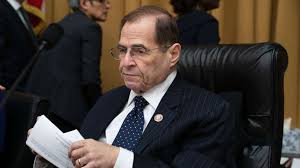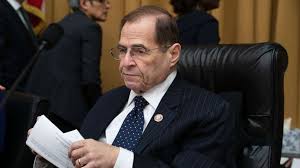A United States House of Representatives subcommittee held a hearing on Wednesday at which countrywide marijuana legalization was considered. The hearing of the Crime, Terrorism, and Homeland Security Subcommittee of the House Judiciary Committee appears designed to start off deliberative action in the House out of which the advancement of legalization legislation to the House floor will arise. However, the focus by Democratic majority House members on racial issues in the hearing titled “Marijuana Laws in America: Racial Justice and the Need for Reform” suggests the move toward legalization is off to a rocky start.
While the majority of Americans have supported marijuana legalization for years, action in the US House and Senate to accomplish this goal had been blocked by Republican leadership in the two legislative bodies. With Democrats gaining a majority in the House via the November election, the move toward accomplishing the popular legalization objective appears finally to be underway in the House. Indeed, subcommittee Chair Karen Bass (D-CA) concluded her opening comments by indicating that the hearing is the beginning of a process toward overturning current marijuana laws, stating:
There is a growing consensus in this country that current marijuana laws are not appropriate and we must consider reform. Today’s hearing is a first step in that process.
For years, when marijuana law liberalization measures have been considered on the House floor, a much greater percentage of Democratic members have tended to vote for those measures than have Republican members. And the Democratic members’ greater support for legalization has gone along with the higher support for legalization among Democratic voters than among Republican voters. Gallup polling indicates legalization has 75 percent support among Democrats in America and, for the last two years, slim majority support among Republicans. While legalization support among Republican House members still lags, we should see more Republican House members coming on board, in part due to pressure generated by the growth in support among voters, including Republican primary voters, and the continuing expansion of state-level legalization in America.
Over the last few years of Republican control of the House, new marijuana-related amendments were blocked from House floor consideration. Democratic control has meant the reversal of this policy. In this first year of a Democratic majority House, marijuana law liberalization measures have been considered on the House floor. That is just the beginning. Sooner than most people probably expect, a bill legalizing marijuana will likely be on the House floor for a debate and a vote.
While the momentum is strongly behind countrywide marijuana legalization, the potential monkey wrench that can delay that legalization may develop from a partisan divide over how legalization should be accomplished. Democrats who control the House will be tempted to put on the House floor legislation that combines significantly rolling back the war on marijuana or legalizing marijuana along with creating or expanding big-government programs, such as race-based marijuana business subsidies and new welfare programs spending supposedly purposed to rectify problems that marijuana prohibition has caused. An example of such legislation is Senate Minority Leader Chuck Schumer’s (D-NY) “Democrats only” Marijuana Freedom and Opportunity Act (S 1552).
The Republican resistance to legalization saddled with new government meddling was signaled clearly at the Wednesday hearing by Republican House Member Tom McClintock (R-CA) who has long been a prominent proponent of rolling back the US government’s marijuana prohibition.
McClintock, as acting ranking subcommittee member at the hearing, commented in his opening statement that his preference is for the US government to just butt out regarding marijuana. McClintock stated:
Furthermore, the essence of federalism is deferring to state legislatures on most domestic issues. Louis Brandeis famously observed that a state may, if its citizens choose, serve as a laboratory and try novel social and economic experiments without risk to the rest of the country.
McClintock proceeded to point to the House’s approval last month, with bipartisan support, of an amendment to protect from US government prosecution people complying with state recreational marijuana laws. This, he noted, is a step toward accomplishing the desired federalism objective.
McClintock also suggested in his opening statement why efforts to add onto a legalization bill measures related to race in particular could peel away Republican support. McClintock concluded his opening statement as follows:
I do regret that just as strong bipartisan consensus is emerging on this issue, the majority has decided to play the race card at today’s hearing. We should have only one race in our free country — the American race, and the left does enormous harm every time it tries to divide Americans along racial lines. The fact is that our marijuana laws have badly served all of us as a nation, and this realization could be used to bring us together rather than to tear us apart.
Laws have been tried over many years and have not only failed to achieve their objectives, but have created great harm in the process. I think it’s time to revise and repeal them. I believe we have reached such a moment. And shame on those who would use it to inflame racial divisions.
Democratic House members pushing through the House marijuana legalization coupled with new big-government measures, including those seeking to benefit some people based on their race, is a sure way to greatly reduce or totally block Republican support. And such a bill approved in the House can be expected to go nowhere in the Republican majority Senate and to fail to obtain support from President Donald Trump.
If Democratic House members want marijuana legalization to happen soon, they should support a clean marijuana legalization bill that, as McClintock suggested at the Wednesday House subcommittee hearing, is focused on making the US government butt out.


